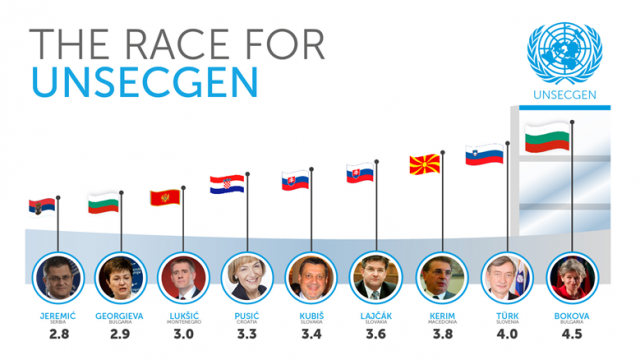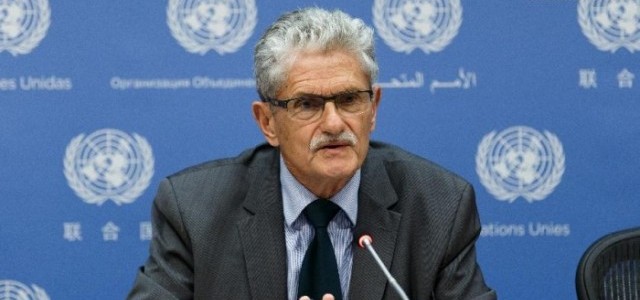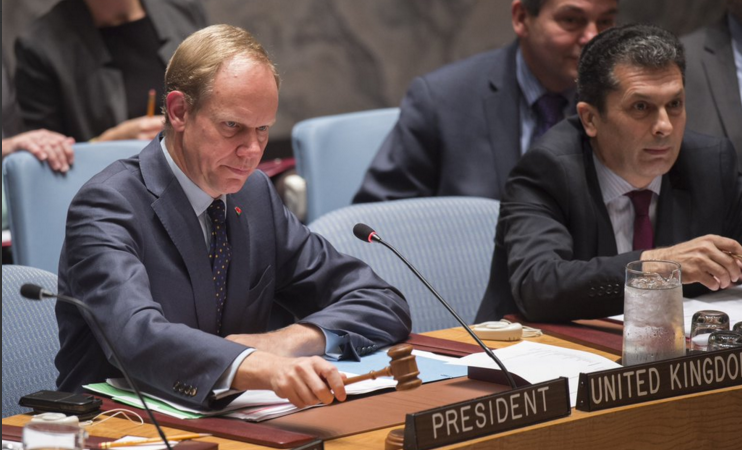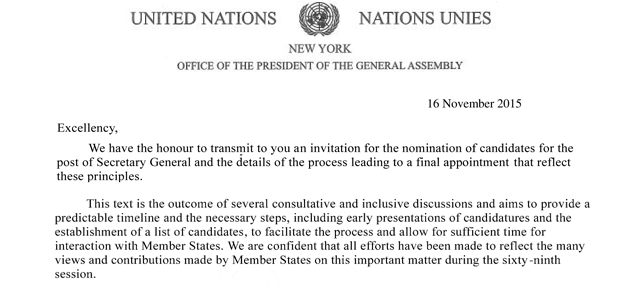During the upcoming 2011-2012 biennium of the Security Council, reform of the body will be a frequent topic of discussion. Brazil and Nigeria will be continuing as non-permanent members for another year, India and South Africa are sole candidates from their respective regional seats, and Germany is likely to be elected to one of the two open WEOG seats. This places quite a few aspirants for permanent seats on the Council at the same time and the question of reform front and center.
A new draft text on government positions is expected to be released by the chair of the intergovernmental negotiations group soon. This text pulls together most of the major proposals, including the addition of two permanent seats on the Security Council for African states. African states want this to include “the same prerogatives and privileges as those of the current permanent members, including the right of veto,” but this demand has already been dismissed as “an exercise in futility” in negotiations to date.
Foreshadowing the continued intergovernmental reforms to take place once the revised draft text is released, a number of African leaders used their opening remarks in the General Assembly this week to reaffirm the inclusion of Africa on the Security Council.
President Bingu Wa Mutharika of Malawi reiterated the African Union position:
“With regards for reforms of the United Nations and the Security Council, the African Union believes that for the organization to be effective in fulfilling its mandate as an honest broker, there is need to implement the proposed reforms within the spirit of equity and fairness. In this regard, I would like to reiterate the African Union’s request for two permanent seats with full veto powers and five non-permanent seats. The African Union should also have the right to determine the selection of Africa’s representatives in the Security Council. Once implemented, this should enable allow African to effectively participate in the global governance that the United Nations is now propagating.”
President Abdoulaye Wade of Senegal likewise called for two permanent seats with full veto powers:
“How, indeed, to develop a credible role for our Organization in global governance, but that Africa, which comprises over a quarter of its workforce and employs 70% of the questions in the agenda of the Council only has to no permanent seat on the Council?”
President Ali Bongo Obdimba of Gabon noted that
“The time seems ripe to me, for Africa, not only to sit permanently in the Security Council, but also to assume fulfillment of its responsibilities as full actors on the international scene.”
Ugandan president Yoweri Museveni called for permanent representation for Africa in a meeting of the Security Council summit.
“The Council needs greater credibility, legitimacy and representation. It is an injustice that the entire continent of Africa, with 53 member states and a population of over one billion people, has no permanent representation on this council”, a presidential spokeswoman quoted president Yoweri Museveni as saying in a speech to the UN Security Council Summit in New York.
Though he mistakenly alluded to Africa as being the “only region in the world without permanent representation” — Latin America also lacks a permanent seat — Namibian President Hifikenpunye Pohamba called for an updated Security Council membership.
Comprehensive reform of the body will make it “more representative, democratic and accountable,” he told the Assembly. “It is unjust that Africa remains the only region in the world without permanent representation on the Security Council,” Mr. Pohamba stressed.
Full speeches by African and other heads of state to opening session of General Assembly’s 65th session, many with accompanying videos, can be read at http://gadebate.un.org/




